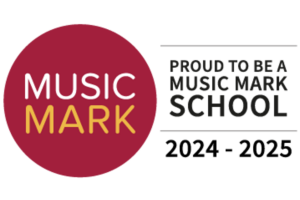- Overview
- Our Curriculum Intent
- Subjects
- Ready to Learn
- Assessment
- Reading
- Student Celebration
- Personal Development
- Student Wellbeing
- Trips, Clubs and Enrichment
- Cambridge Aim Higher 2025
- Thackray Museum of Medicine 25
- Glasshouse International Centre for Music 25
- Hamilton 2025
- Ski Trip 2025
- P16 London 2025
- Young Voices 2025
- Paris Drama Convention 2025
- Geography Fieldwork 2024
- France 2024
- Pilgrimage 2024
- Thackray Medical Museum 2024
- Vietnam 2024
- Ski Trip 2024
- Paris 2024
- Auschwitz 2023
- Cambridge 2023
- France
- Geography Field trips
- Nell Bank
- Oxford
- Pilgrimage
- Rewards
- Ski Trip
- Spain
- Thailand
- Student Leadership and Student Voice
- Creative Arts School Shows
- Homework and Remote Learning
- Year 9 Pathways
- Exams Information
- British Values
- Extra-Curricular
- Go Higher West Yorkshire
Science

Science Intent
The science curriculum at Immanuel has been structured to embed a broad range of scientific knowledge and understanding in young people, giving them a deeper knowledge of the ever-evolving scientific and technological world around them6.
There are opportunities for students to enjoy hands on experience and develop practical skills within and outside the classroom through enrichment. We develop students’ passion for science by connecting with the reality of their lives and experiences, appreciating their value and highlighting their relevance to science. We endeavour to spark curiosity by challenging pupil perceptions of science in the wider world and promoting students’ scientific literacy by encouraging critical thinking. We challenge all students to raise their hopes and aspirations to be indispensable in the workplace and everyday life in this advanced technological age and understand how to make healthy lifestyle choices. Diversity is at the heart of everything we do, and a range of inclusive scientists are referenced throughout the curriculum promoting access for all.
Their study of science allows them to be prepared for their life journey including: Perseverance, securing their understanding of new technologies and the impact human activities have on the environment around them such as discovery of the microscope, the structure of atoms, products from crude oil and their associated implications. Using a science capital approach to engage students in topics that are relevant to their development in everyday life and so that they see the importance of this knowledge. Nurturing academic habits such as interpretation, evaluation and analyses to provide our students with real competencies to succeed in the modern world.
Our curriculum develops students’ character by fostering confidence, awe and wonder with phenomena such as: Why do flowers smell nice; why satellites don’t fall, but apples do; how organisms change over time; why we rely on microbes for survival. Encouraging students to critically consider the emerging moral issues and form knowledge-based opinions such as the use of embryos in research, the effect of human activities on biodiversity, animal welfare and selective breeding, use and abuse of natural resources. Encouraging students to engage in healthy debate, knowing how to use facts, evidence and knowledge and knowing how to listen and critically consider other viewpoints such as opposing views on vaccination programmes; evidence for and against climate change; the challenge of balancing human needs with those of the natural world.
Through a love of science students are inspired and have hope, offering pathways that foster confidence in countering social disadvantage and expanding horizons and aspirations to increase social mobility9.
6 Psalm 24:1– ‘The earth is the Lord’s and everything in it’
9 John 10:10 – Jesus said, ‘I have come that they may have life and have it abundantly.’








